As a tow vehicle operator, it is important to have a reliable and safe trailer coupler to connect your trailer to your vehicle.
There are two types of trailer couplers widely used: the A-shaped tongue and the straight tongue.
A-shaped tongue:
A-shaped tongues have four different mounting styles: foldaway style, A-frame coupler style, flat mount style, and lunette ring mount.
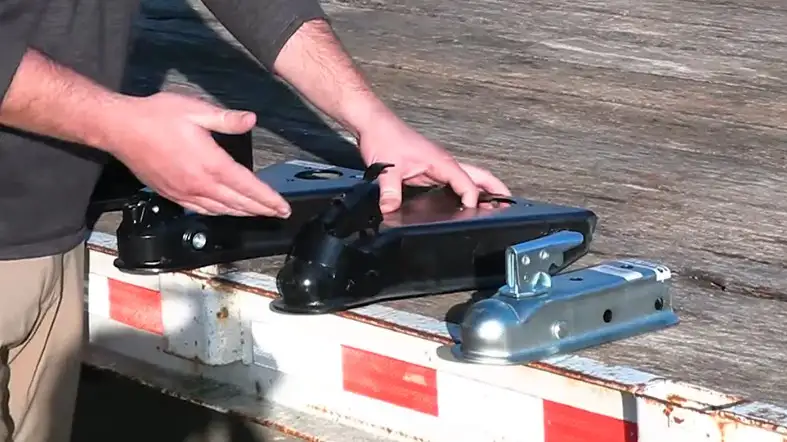
Foldaway style
The foldaway style can be easily set up by removing the pin and clip.
It also offers space-saving options for storage when the trailer tongue is folded. This style can tow between 5,000 and 9,000 pounds.
A-frame coupler style
This style securely locks onto an A-shaped tongue and can handle heavy-duty towing with a capacity of up to 21,000 pounds.
Flat Mount Style
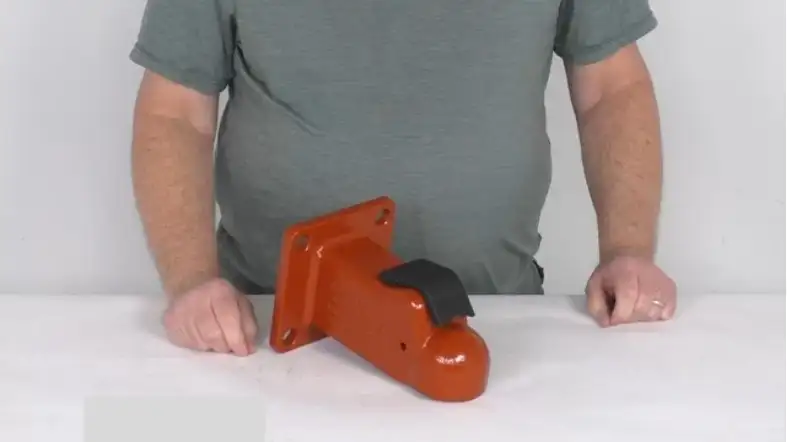
The flat mount is also used for A-shaped tongues and can handle even heavier loads, with a towing capacity of up to 25,000 pounds.
This makes it perfect for boat trailers.
Lunette ring mount
The lunette ring mount is specifically designed for A-frame trailers and has an impressive towing capacity of 45,000 pounds, making it suitable for large 5th wheels and trailers.
Straight tongue:
The straight tongue has three different mounting styles: round tongue style, adjustable tongue mount, and gooseneck coupler.
Round tongue style
Round tongue style is commonly used for horse trailers or small utility trailers. It can tow between 3,500 and 7,000 pounds.
Adjustable Tongue Mount
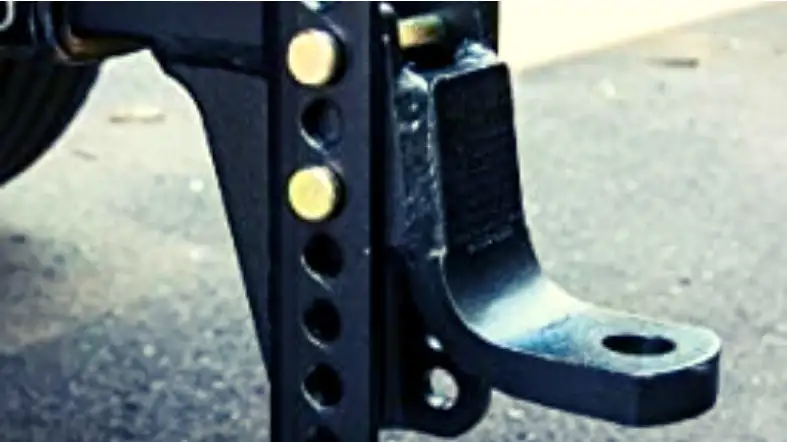
Adjustable tongue mount type of coupler can be adjusted to fit the height of various tow vehicles with an additional bracket mounted on the trailer jack (sold separately). It can handle up to 21,000 pounds in weight.
Gooseneck coupler
A gooseneck coupler is specifically designed for gooseneck trailers and is often used in agriculture or commercial towing, with a capacity of up to 40,000 pounds.
In addition to these types of trailer couplers, there is also the brake actuator which connects to a tow vehicle
How to Choose the Right Coupler?
When choosing the right coupler for your trailer, there are several factors to consider:
- Trailer Weight
- Mounting Style
- Towing Vehicle Capacity
- Intended Use
- Computability
- Check with local laws and regulations
Trailer Weight:
The weight of your trailer will determine the capacity that your coupler needs to safely tow.
It is important to choose a coupler that can handle the weight of your trailer, as well as any additional cargo or equipment.
Mounting Style:
The mounting style of your tow vehicle’s hitch will determine the type of coupler you need.
A-frame and gooseneck hitches require specific coupling styles, so be sure to choose a coupler that matches the mounting style of your tow vehicle.
Towing Vehicle Capacity:
The capacity of your tow vehicle will also determine the weight limit for your chosen coupler.
It’s important to choose a coupler that can handle the weight of both your trailer and any additional cargo or equipment, while also not exceeding the capacity of your tow vehicle.
Intended Use:
Consider the type of trailer and the types of loads you plan on hauling with it. This will help determine the weight capacity and style of coupler needed for safe towing.
Compatibility:
Ensure that your chosen coupler is compatible with both your trailer and tow vehicle, including any electronic or hydraulic brake systems. Check manufacturer guidelines for compatibility information.
Local Laws and Regulations:
It’s important to check local laws and regulations regarding trailer coupling, as well as any necessary certifications or permits required for safe towing in your area.
Overall, choosing the right coupler is essential for safe towing. Be sure to consider all factors before making a decision.
Benefits Of Trailer Couplers
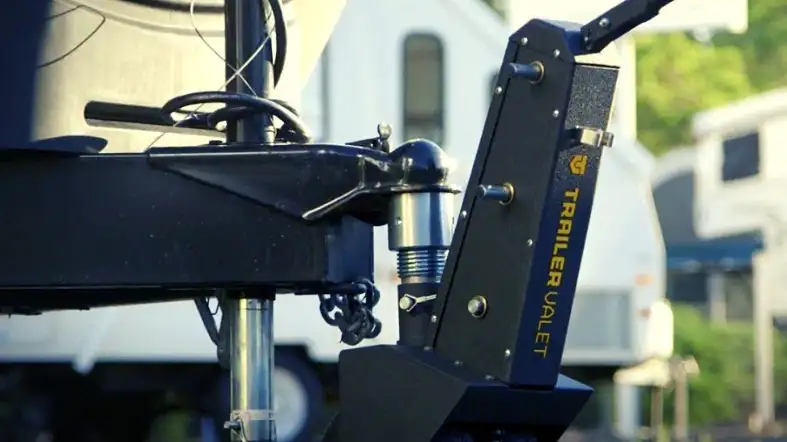
1. Ensures safe towing by connecting the trailer to the tow vehicle
2. Can handle heavy loads and prevent accidents or damage
3. Allows for quick and easy attachment and detachment of trailers
4. Helps to evenly distribute weight for better stability while driving
5. Can provide electronic or brake control systems for improved safety on the road
6. Available in a variety of styles, capacities, and compatibility options
7. Can enhance towing capabilities and improve performance
8. Can increase overall efficiency during hauling or towing operations
9. Provides added security during transportation
10. Meets necessary legal requirements and regulations for safe operation on the road.
Are there any disadvantages to trailer couplers?
Some potential disadvantages may include the cost of purchasing and maintaining a coupler, as well as potential compatibility issues with certain trailers or tow vehicles.
In addition, improper use or installation of a trailer coupler can lead to safety concerns and accidents.
It is important to carefully consider all factors and properly maintain and use a trailer coupler to ensure safe operation on the road.
When Should You Use A Trailer Coupler?
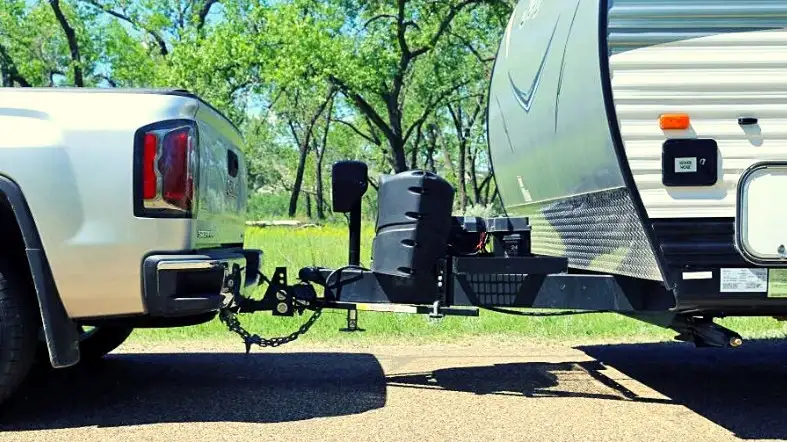
A trailer coupler should always be used when connecting a trailer to a tow vehicle for towing purposes.
It is important to ensure that the coupler is compatible with both the trailer and tow vehicle, as well as capable of handling the weight of the trailer and any cargo being hauled.
It is also necessary to follow local laws and regulations regarding trailer coupling and towing operations.
Failure to use a properly functioning coupler can lead to safety concerns and accidents on the road.
Which type of trailer coupler is best for me?
The best type of trailer coupler for an individual will depend on various factors, including the weight and intended use of the trailer, compatibility with the tow vehicle, and local laws and regulations.
It is important to thoroughly research and consider these factors before making a decision on which type of coupler to purchase.
Consulting manufacturer guidelines or a professional in the industry can also be helpful in determining the best option for your specific situation.
In general, we would suggest considering the A-shaped tongue coupler for heavier trailers and off-road use, as it offers greater strength and stability.
However, the straight tongue coupler may be more suitable for lighter trailers and on-road use, as it allows for easier hook-up and improved maneuverability.
How Do I Properly Attach A Trailer Coupler?
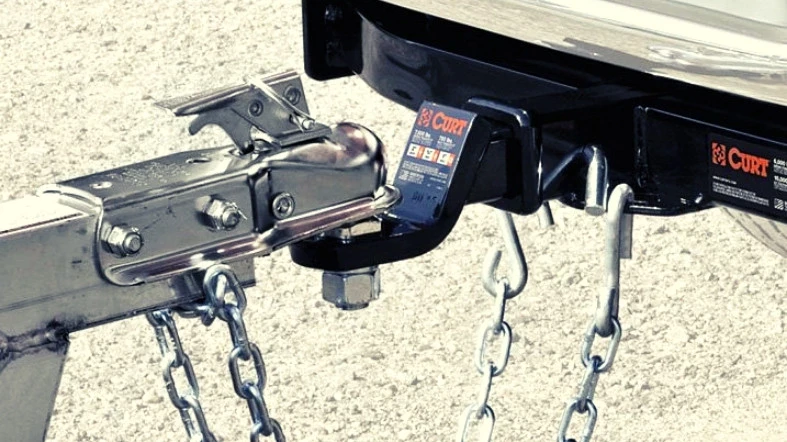
Proper attachment of a trailer coupler will vary depending on the specific type and model being used.
Here is the most common method for attaching a coupler:
1. Position the trailer in line with the tow vehicle and lower the coupler onto the ball of the hitch.
2. Securely fasten any pins, clips, or latches to hold the coupler in place on the hitch ball.
3. Check that all connections are secure and properly aligned before proceeding to hook up the brake or electronic systems, if applicable.
4. Test the connection by gently pulling back and forth on the trailer to ensure it is securely attached before beginning to tow.
5. Always double-check all connections before each use and regularly inspect and maintain your trailer coupler for safe operation on the road.
6. Never tow a trailer that is not properly and securely attached to the tow vehicle with a functioning coupler.
10 Things You Should Know About Trailer Couplers
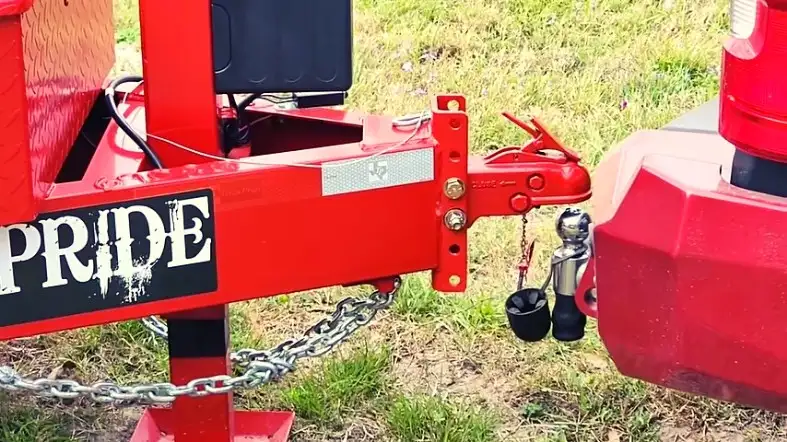
1. The weight of your trailer will determine the necessary capacity for your coupler.
2. Different mounting styles require different types of couplers.
3. Your tow vehicle’s capacity should also be taken into consideration when choosing a coupler.
4. Consider the intended use of your trailer and any loads you plan on hauling.
5. Compatibility with both the trailer and tow vehicle is important.
6. Check local laws and regulations regarding trailer coupling.
7. A straight tongue coupler is commonly used for small utility trailers or horse trailers.
8. An adjustable tongue mount coupler can be adjusted to fit various tow vehicles.
9. A gooseneck coupler is specifically designed for gooseneck trailers and often used in agriculture or commercial towing.
10. A brake actuator connects to a tow vehicle’s brake system to apply pressure on the trailer’s brakes while in motion.
FAQs
How Often Should I Replace Or Maintain My Trailer Coupler?
Maintenance and replacement of a trailer coupler will depend on factors such as usage and wear, as well as any potential damage.
It is important to regularly inspect the coupler for signs of wear or damage and follow manufacturer guidelines for maintenance and possible replacement.
Can I Use A Different Type Of Trailer Coupler Than What Is Recommended For My Trailer Or Tow Vehicle?
It is not recommended to use a different type of coupler than what is specified by the manufacturer or recommended for your specific trailer and tow vehicle.
Using an incompatible or inadequate coupler can lead to safety concerns and potential accidents on the road.
It is important to ensure proper compatibility and capability before using a trailer coupler.
Is It Legal To Tow A Trailer Without A Coupler?
It is not legal to tow a trailer without a properly functioning coupler in most cases.
It is important to follow all necessary laws and regulations regarding towing operations, as well as ensure proper use and function of the trailer coupler for safe operation on the road.
Do I Need A Brake Actuator With My Trailer Coupler?
This will depend on local laws and regulations, as well as the weight and intended use of the trailer.
Can I Use A Trailer Coupler For Other Purposes, Such As Attaching To A Hitch Mount Or Cargo Carrier?
It is not recommended to use a trailer coupler for purposes other than connecting a tow vehicle and trailer.
Using the coupler in this manner can lead to potential damage or safety concerns.
Can I Use My Trailer Coupler With Multiple Trailers Or Tow Vehicles?
Depending on the type and capability of the trailer coupler, it may be able to be used with multiple trailers or tow vehicles.
However, it is important to ensure proper compatibility and capability for each specific situation before using the coupler.
Conclusion
Now you know the different types of trailer couplers, their importance in towing operations, and important considerations before purchasing or using one.
Remember to always research and follow manufacturer guidelines, local laws and regulations, and consult professionals in the industry to ensure the safe and proper use of a trailer coupler.
